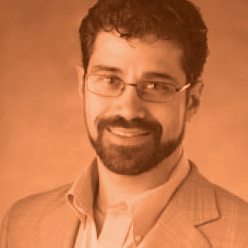|
About
Growing Wealthier: Smart Growth, Climate Change and American Prosperity
By Chuck Kooshian and Steve Winkelman for the Center for Clean Air Policy, January 2011.
With the pace of economic recovery uncertain and the real estate market still
uneven, developers, policy makers and transportation professionals seek
information to guide their investments. At the same time, market analysis
reveals pent-up demand for walkable communities driven by demographic changes
poised to transform the real estate industry. In CCAP’s comprehensive new
report, Growing Wealthier: Smart Growth, Climate Change and Prosperity,
written by Chuck Kooshian and Steve Winkelman, we consider ten common-sense
principles that can help guide new development in ways that respond to emerging
market demand and bolster the economy. We find that an inclusive planning
process following smart growth principles that yields more walkable
neighborhoods with broader options for housing and transportation can help
communities, businesses and individuals make money, save money and improve
quality of life.
Charles Kooshian, Senior Transportation Policy Analyst
 |
Charles (Chuck) Kooshian, Senior Transportation Policy Analyst, has more than
twenty years experience in transportation and land use planning for regional and
local government. Chuck is the lead author of Growing Wealthier: Smart Growth,
Climate Change and Prosperity (CCAP 2011).
Chuck evaluates transportation policy alternatives and their effects on GHG
emissions, governmental planning processes and institutional coordination
issues. He has analyzed the cost effectiveness of various land use and
transportation measures to reduce GHG emissions and the data needs for
monitoring and performance evaluation. He led a study to examine barriers
hindering state and local governments from implementing climate change
mitigation projects.
|
During the preparation of Growing Wealthier he became
interested in measuring how urban form affects the economic and other benefits
that a city provides to households, businesses and governments. Before joining
CCAP Chuck developed travel demand models for public and private use in
California , Michigan , Florida and Texas . He also worked as a long range
comprehensive land use planner in El Paso , Texas where he managed the Open
Space and Green Infrastructure Planning process and facilitated the adoption of
the Smart Code. As a land use planner he was particularly concerned with how the
selection and planning of transportation projects has long-term effects on land
use. As a member of the Joint Action Committee for the Improvement of Air
Quality in the Paso del Norte Basin, he formulated recommendations for
cooperative actions to reduce pollution along the U.S. – Mexico border region.
Chuck holds an MS in Urban and Environmental Systems from Florida International
University and a BA in Political Science from the University of California at
Berkeley.
Steve Winkelman, Director of the Transportation and Adaptation Programs
 |
Steve Winkelman, Director of the Transportation and Adaptation Programs, has 20
years of experience in the transportation, energy and environmental fields. He
assists government officials with policy design, implementation and evaluation
in the U.S. and abroad. Steve is the co-author of Growing Wealthier: Smart
Growth, Climate Change and Prosperity (CCAP 2011) and a co-author of Growing
Cooler: The Evidence on Urban Development and Climate Change (ULI 2008).
Steve has successfully focused policy attention on the importance and
cost-effectiveness of slowing growth in travel demand to reduce greenhouse gas
(GHG) emissions, popularized with his phrase, “Sidewalks are as sexy as
hybrids.†He crafted and generated broad support for an incentive program to
reduce transportation GHGs, and for recommendations to improve travel data and
modeling in support of performance-based policy.
|
Steve has testified to four Congressional committees on these topics. He
developed the CCAP Transportation
Emissions Guidebook with tools for quantifying savings from vehicles, fuels and
travel efficiency. Steve also directed the Urban Leaders Adaptation Initiative,
helping local governments to “Ask the Climate Question†when making
infrastructure and land use decisions.
Prior to joining CCAP, Steve managed ICF’s Climate Wise industrial energy
efficiency program for the US EPA. At Argonne National Laboratory he designed,
built and tested a magnetically levitated vehicle (maglev). Steve is a member of
the National Academy of Sciences’ Sustainable Transport Committee. He holds a BS
in Physics from the University of Michigan and an MA in Public Policy from the
University of Minnesota. Steve lives in Montréal.
About CCAP
Since 1985, CCAP has been a recognized world leader in climate and
air quality policy and is the only independent, non-profit think-tank working
exclusively on those issues at the local, national and international levels.
Headquartered in Washington, D.C., CCAP helps policymakers around the world to
develop, promote and implement innovative, market-based solutions to major
climate, air quality and energy problems that balance both envi-ronmental and
economic interests. For more information about CCAP, please visit www.ccap.org.
|